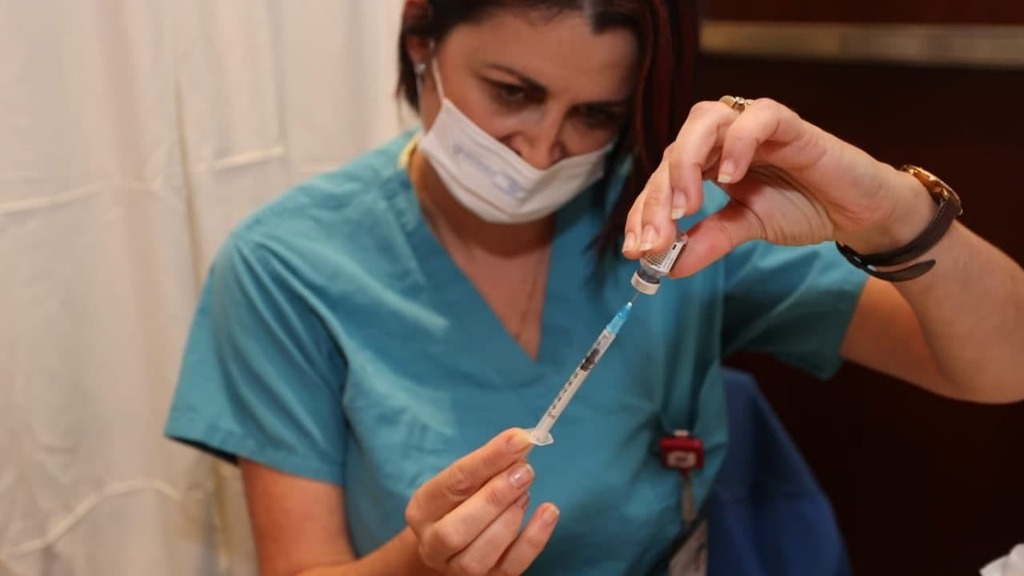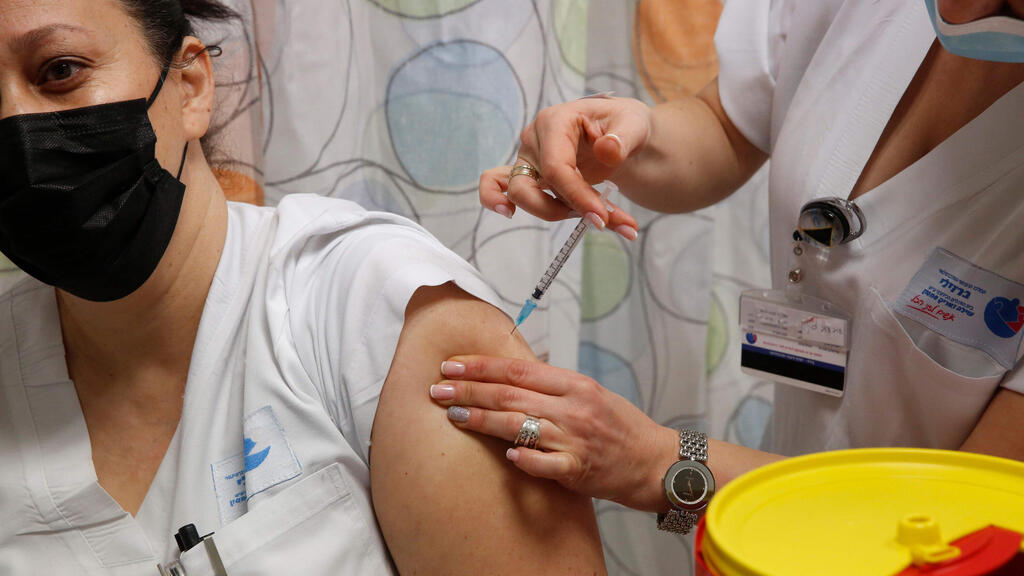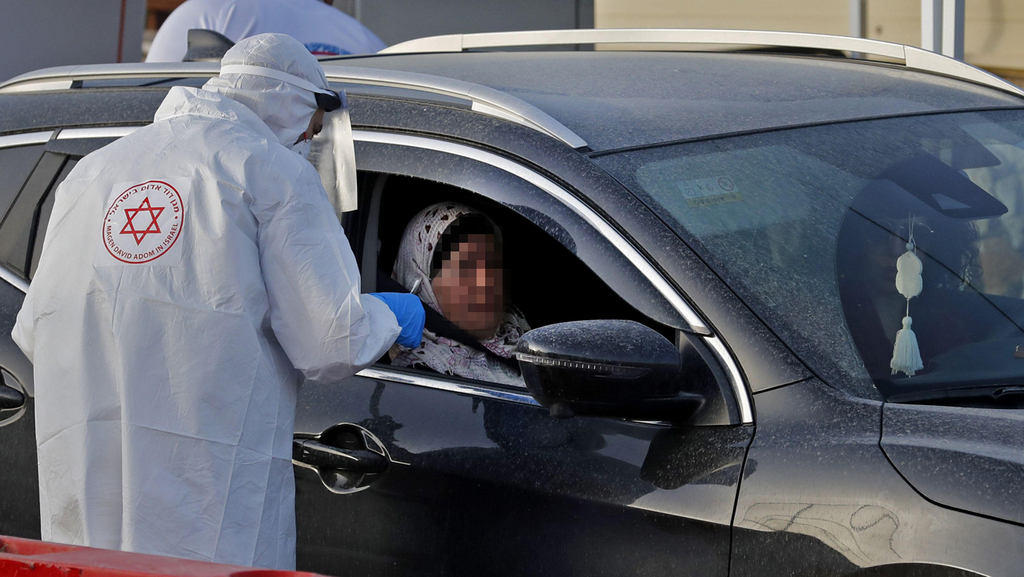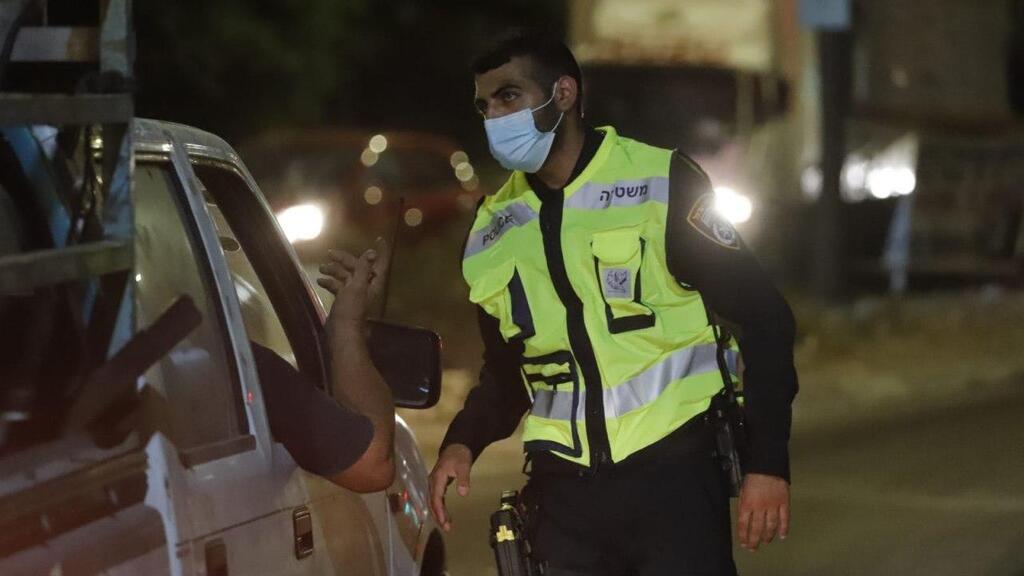Getting your Trinity Audio player ready...
As Israel’s health system prepares for the nationwide coronavirus vaccination campaign, a Ynet investigation has revealed that the number of vaccination centers in Arab localities is negligible.
As part of the vaccination operation that began Sunday, medical personnel in the country's major hospitals were first in line to get the shot. Israelis aged 60 and over who are members of one of the four HMOs were also able to receive their vaccines from Sunday.
4 View gallery


A nurse prepares to administer the coronavirus vaccine at the Rambam Medical Center in Haifa
(Photo: Gil Nechshtan)
All four health funds were scheduled to operate a total of 57 vaccination centers, of which only three are in localities where only Arabs live.
Two health funds - Maccabi and Meuhedet - have chosen not set up vaccination centers in any Arab locality. Leumit will set up only one vaccination center in the Arab city of Arraba in the Lower Galilee.
Clalit, the biggest HMO in Israel and which has the highest number of Israeli Arab members, will open only two vaccination centers in Arab localities, in Rahat in the south and Nazareth in the north.
4 View gallery


A medical staffer receiving the coronavirus vaccine in Barzilai Hospital, Ashkelon
(Photo: AFP)
Vaccination centers have been opened in several cities with mixed populations, including Jerusalem, Haifa and Acre, but other mixed cities such as Ramla, Lod or Jaffa are not scheduled to receive vaccination centers either.
"We expect all HMOs to make the vaccination accessible to all equally and hope that the failures of the onset of the crisis will not repeat themselves, when no coronavirus testing complexes were set up,” said human rights NGO Adalah – The Legal Center for Arab Minority Rights in Israel.
“We will continue to monitor this issue and ensure that the rights of the Arab population to receive health services are not impaired.”
Lital Grossman, who heads the health policy department in the Physicians for Human Rights–Israel association, said: "It was expected that the Arab population, which is characterized by a higher rate of morbidity and lower accessibility to health centers, would be given priority or at least equal allocation of vaccination centers."
She added: "Urgent action must be taken to make the vaccines accessible to the Arab population in accordance with their relative size and their high infection rates.”
Prof. Nihaya Daoud, a lecturer on public health at Ben-Gurion University of the Negev added: “We want the Arab population to be vaccinated, because herd immunity cannot be obtained without the participation of the Arab and ultra-Orthodox populations. And for them to be vaccinated, the trust of those publics in the health system in particular and in the government in general must be increased.”
None of the HMOs responded to a Ynet request to comment on the issue.



